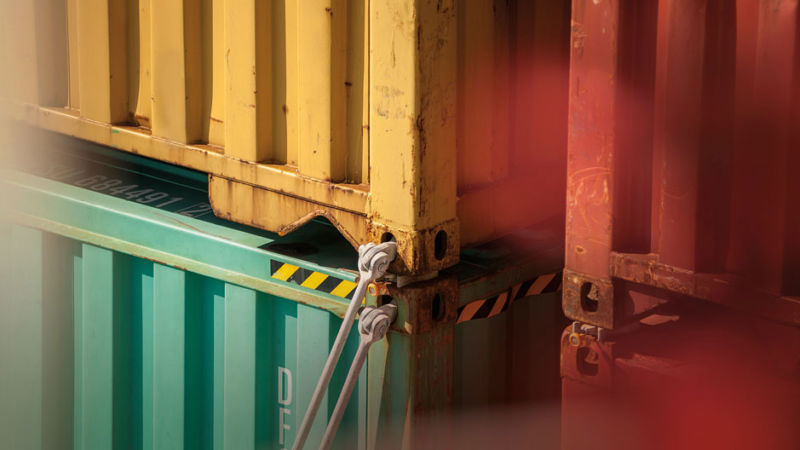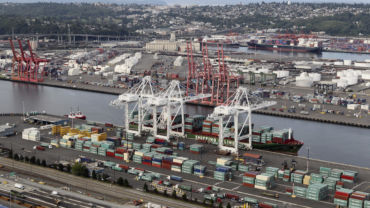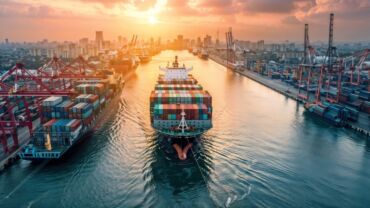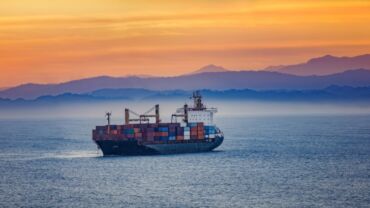The latest Thomson Reuters Corporate Global Trade Survey Report shows how global trade executives are managing everything from supply-chain disruptions to climate catastrophes
In today’s world, supply-chain disruptions have become commonplace and apply to an astonishing number of issues impacting the global marketplace, from shortages of semiconductors and computer chips, to energy resources, coffee, baby formula, wheat, and hundreds of other commodities and products.
Couple this with catastrophic climate events and political upheaval, and you have multinational companies scrambling to devise strategies to minimize the impact of these disruptions.
To further examine this situation, Thomson Reuters’ first annual Corporate Global Trade Survey Report takes a look at the real-world factors affecting global trade executives and managers today. For the report, we surveyed more than 200 global trade professionals around the world to find how the current trade environment is affecting their business, what specific challenges they face, and how they are using technology to meet these challenges.
Responses to the survey were separated into four regions — the United States, the European Union and the United Kingdom, Latin-America, and the Asia-Pacific region — with more than half of survey respondents being upper-level executives at the director level or higher.
Technology is one of the common denominators in all of the issues facing global trade managers — so much so that 81% of respondents agreed that the solution to rapidly changing customs environments lay in adopting more capable global trade technologies.
What aspects of global trade concern these executives the most? Among the top responses cited, were:
-
-
-
- regulatory changes;
- new agencies, rules, and policies;
- tariffs and sanctions;
- supply-chain snarls;
- rapid technological change;
- risk management; and
- the need for skilled talent.
-
-
Themes of the Global Trade Report
In addition to specific data from each major trade region, the report explores three major themes that are currently affecting multinational corporations involved in global trade:
-
-
- Political upheaval and the accompanying supply-chain uncertainty are forcing companies to pay much closer attention to the integrity and resiliency of existing supply chains and the availability of resources.
- Both governments and companies are adopting more sophisticated digital systems and processes to streamline and simplify tax and trade operations; however, more than half of the companies surveyed said they were behind the curve technologically and are still working to catch up.
- Because jobs in trade management are becoming increasingly technical and involve a great deal of specialized knowledge, companies are finding it difficult to find people with the right skills to fill key roles and be effective in the business of global trade.
-
The expanding role of trade technology
Technology is one of the common denominators in all of the issues facing global trade managers. Indeed, 81% of the survey’s respondents agreed that the solution to rapidly changing customs environments lay in adopting more capable global trade technologies that can provide better security, largely automate trade compliance and customs operations, and contain tools to help companies analyze and optimize their supply chains.
The study found that the highest priorities for companies investing in global trade technology currently include:
-
-
- better visibility into the supply chain;
- ability to conduct due diligence for transactions, suppliers, and customers;
- leveraging predictive analytics;
- Using blockchain technology in the supply chain;
- ability to use data to produce insights into opportunities;
- modeling capabilities to simulate trade-lane options and optimize performance; and
- utilizing artificial intelligence (AI) to automate product classifications.
-
Despite a general desire to invest in more powerful technologies, however, finding the right people with the right technical skills, knowledge, and experience to work in key global trade positions is becoming an industry-wide challenge.
The report explores this widening skills gap and the measures being taken to counteract it, including identifying where companies are finding the most capable recruits, and what industry-wide actions can or should be taken to nurture a more reliable talent pipeline.
To find out more, download the Thomson Reuters Corporate Global Trade Survey Report here.







